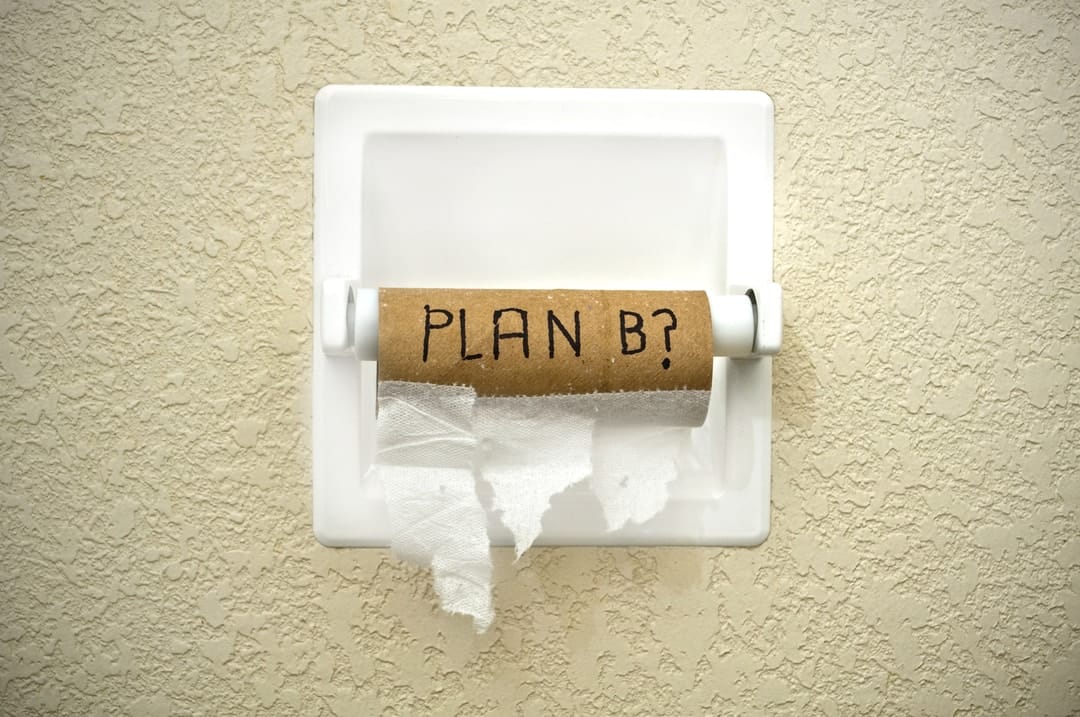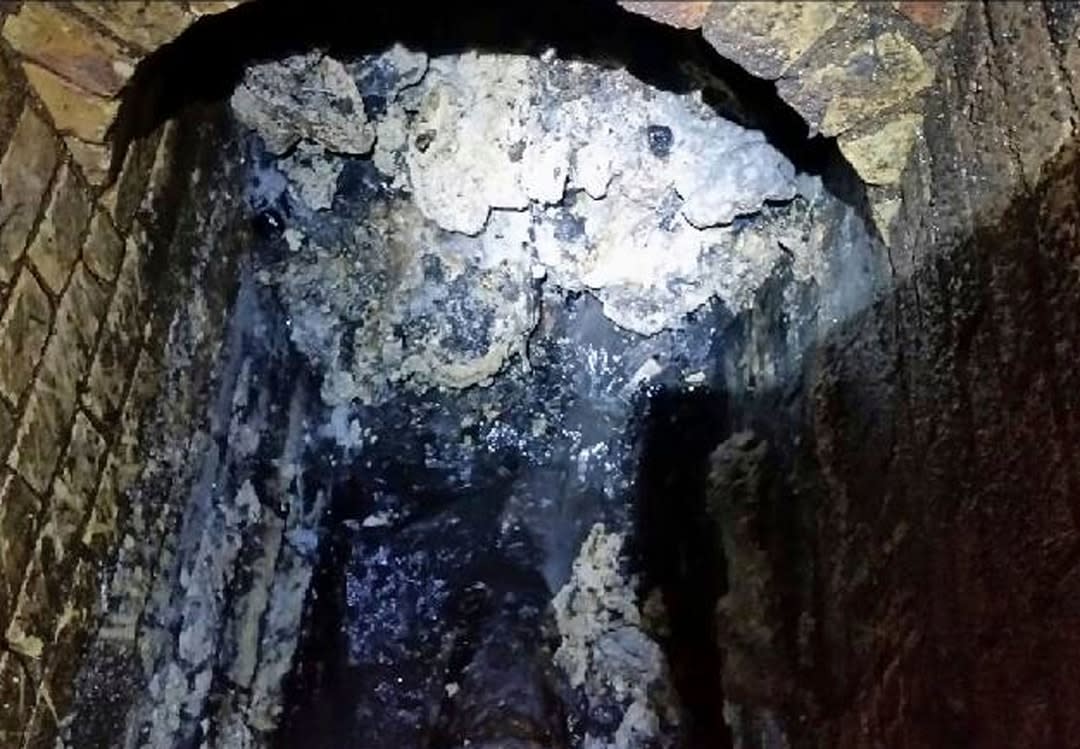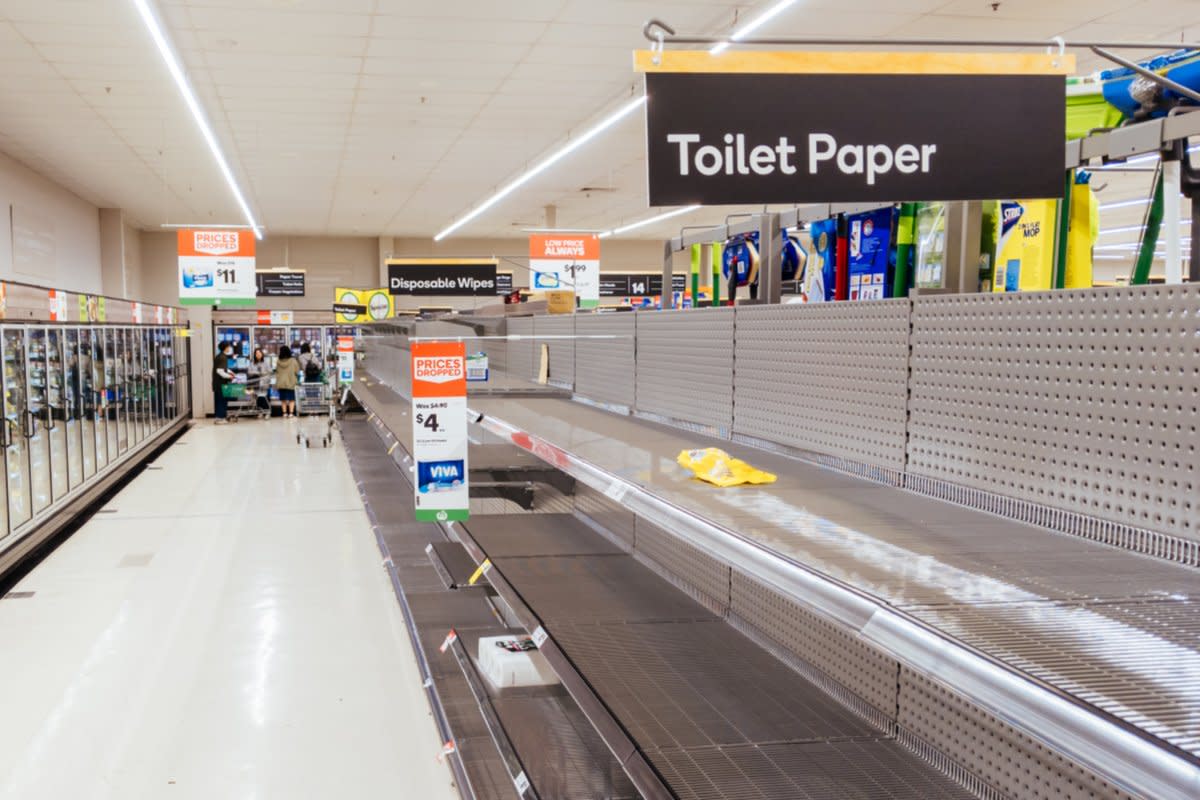
Experts are warning that the panic run on toilet paper could lead to much bigger waste problems than we realise.
With supermarket shelves wiped bare of toilet paper, and napkin aisles fast emptying as well, water infrastructure experts fear that the use of toilet paper alternatives such as wet wipes, napkins and thicker paper could lead to major blockages in our water and sewage systems.

Woolworths yesterday announced restrictions on the amount of tissues, paper towel, serviettes and wipes customers can buy, along with the one-pack limit imposed on toilet paper. Meanwhile, real estate agents are urging vendors to "lock away the toilet paper" during inspections.
Australian water utilities already spend about $15 million a year removing wet wipes from sewage treatment plants and pumping stations. These products can create "fatbergs" – congealed lumps of fat, sanitary items and wet wipes that can bind and block pipes.
“The big issue is that health-related waste is already a problem in terms of disposal, and with COVID-19 we're going to see significant pressure on that waste stream.”
Monash University Professor of Civil Engineering Jayantha Kodikara says if people are unable to access toilet paper, and start flushing alternatives, wastewater infrastructure could take a hit, with the possibility of enhanced blockages.
“If people can’t find toilet paper at the shops, and are flushing alternatives, the system may not be able to deal with this, and it could disrupt the wastewater pipes,” he says.
“Anything that's heavier-weight than toilet paper can block the sewers. This may become a real issue.”
"Monster" fatbergs aren't uncommon – in 2017, one weighing 130 tonnes and 250 metres long was found under the city of London. Dubbed the "Whitechapel Monster", it was the equivalent of 19 African elephants, or two Airbus 318s.
In 2019, a 64 metre-long fatberg was discovered in the sewers of a small English seaside town. Workers spent an estimated eight weeks using shovels, pickaxes and high-pressure cleaning equipment to break up and remove the congealed mass of fat, oil, wet wipes and other non-flushable items. Fatbergs of this scale are less common in Australia, but still cause hundreds of blockages and sewage overflows every year.
Increasing use of antiseptic wipes and hand sanitiser resulting from the COVID-19 outbreak panic buying has the potential to lead to another major "monster" waste issue, BehaviourWorks researchers warn.
BehaviourWorks research fellow and behaviour change expert Mark Boulet says that while good hand hygiene is vital in preventing the spread of the disease, a likely increase in the use of disposable sanitiser products such as wipes, which don’t break down and often can’t be recycled, could see even more waste going to landfill.
“A lot of single-use products in the health sector – such as face masks and surgical gloves – are treated as medical waste, which has to be disposed of in a very particular way,” he says.
“The big issue is that health-related waste is already a problem in terms of disposal, and with COVID-19 we're going to see significant pressure on that waste stream.”
Boulet says while there are systems in place within health facilities to reduce medical waste, in circumstances of high infection risk it’s unsurprising extra caution is being exercised, which will see greater use of disposable items. It’s also likely even members of the public who usually choose reusable options may be moving towards single-use items for health reasons and to reduce a perceived risk of infection.

Another issue is the waste likely to be generated by panic buying, he says.
“When you’re stockpiling and buying more, ultimately there's going to end up being waste from that. One of the key tips for reducing waste is to only buy what you need, so panic buying, at some stage down the track, is probably going to result in some of the stockpiled products being wasted.”
But individual behaviour, Boulet says, isn’t necessarily what will fix the systemic and structural issues that are exposed at times like these.
While the current focus is rightly on health services and public safety, once the dust settles from COVID-19 we'll likely discover impacts from the outbreak on sectors we never expected. But Boulet says this could provide an opportunity to address structural and systemic issues with waste streams when the time is right.
“Waste management is one of those systems where, when it works, it bubbles along in the background and no one thinks about it,” he says. “It’s not until there’s some crisis – like China’s decision to stop taking our recycling – that we can see where the gaps in the system are. This is the same. It’s showing us where there are structural and systemic changes we can make to improve in the future.”
“It’s not until there’s some crisis – like China’s decision to stop taking our recycling – that we can see where the gaps in the system are."
The Victorian government has stepped up its action following China’s ban on our plastic waste exports. Recent announcements include rolling out a container deposit scheme – the last Australian state to do so, banning single-use plastic bags and introducing a new four-bin recycling system. Public outrage over councils dumping tonnes of recycling into landfill because there was nowhere else for it to go required a government response.
“These crises can really lift the lid on the weaknesses in structures and systems. Then we need to look away from a behavioural response and determine what changes need to be made by government and industry so we aren’t left unprepared the next time around,” Boulet says.
“When the dust settles, that’s a good time to reflect on the lessons we’ve learned, and implement new actions at a time when the public, governments and industry are likely to be more responsive.”





